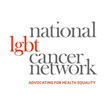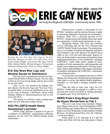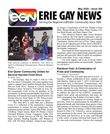Statement of National LGBT Cancer Network on Biden's Moonshot Initiative
The following statement can be attributed to NFN Scout, PhD, Executive Director, National LGBT Cancer Network.
"The National LGBT Cancer Network is extremely pleased to see that this Cancer Moonshot initiative prioritizes both health disparities and community input. Often, people think that eliminating cancer is just about biomedical advances. However, those of us working to meet the needs of LGBTQ+ people on their cancer journey know all too well the gains that can be made with proper screening and care.
As some examples:
- While routine anal cancer screenings would cut down on the steep rise in cancer among HIV+ people, many providers don't know how to perform them;
- A recent study showed more than 80% of oncologists didn't feel comfortable in their knowledge about treating transgender people; and
- Lack of sexual orientation, gender identity, and intersex status data collection severely hampers LGBTQ+ cancer research.
We don't need new biomedical advances to address any of these problems, we need education, communication, and collaboration.
Consequently, the National LGBT Cancer Network applauds the integration of equity into the new Cancer Moonshot initiative and looks forward to working with the President as well as other leaders so together we can minimize cancer's impact on our lives."
The following statement can be attributed to Tony Christon-Walker, cancer survivor.
"As one of the people who helped advise on how to build equity into this Moonshot initiative, it was important for me to explain my experience as a Black gay HIV+ man, living in the South, with cancer. If this Moonshot continues to be driven by people's real life experiences, we can make big changes in how cancer affects many communities."
This statement is available online here.
The National LGBT Cancer Network works to improve the lives of LGBTQ+ cancer survivors and those at risk by educating the LGBTQ+ communities about our increased cancer risks; training health care providers; and advocating for LGBTQ+ engagement in mainstream cancer organizations. We are home to one of eight CDC funded national tobacco and cancer disparity networks. Learn more at cancer-network.org.





